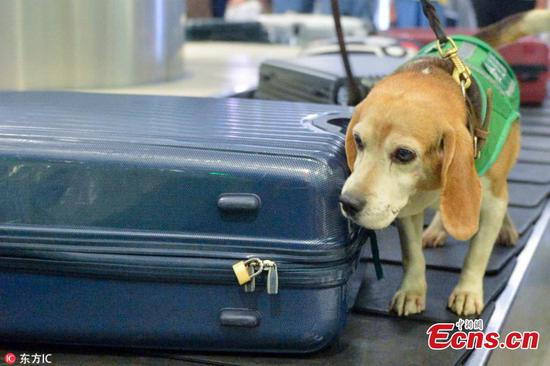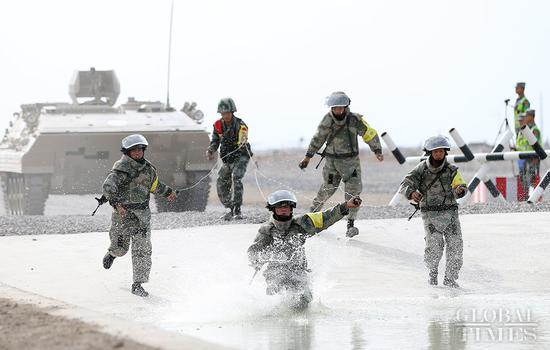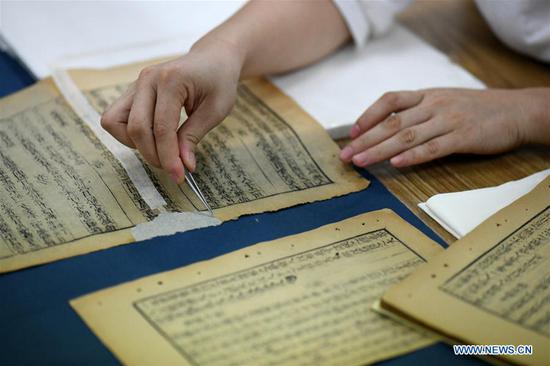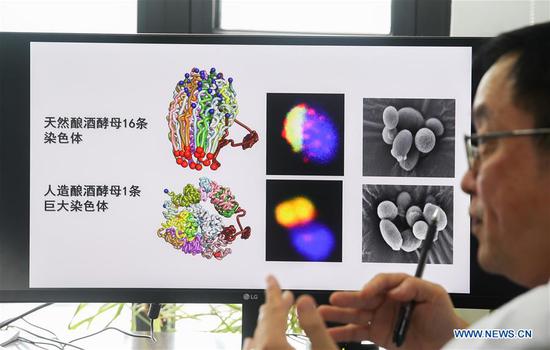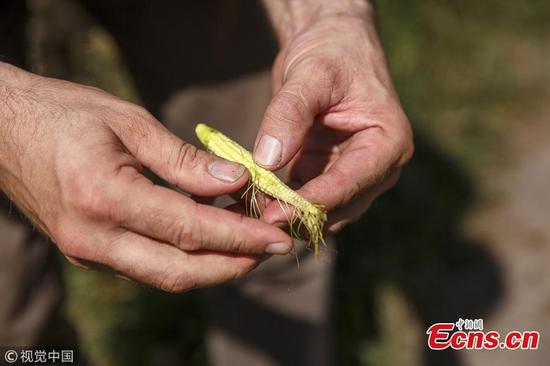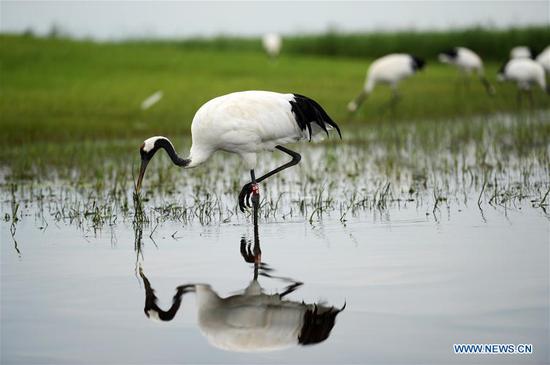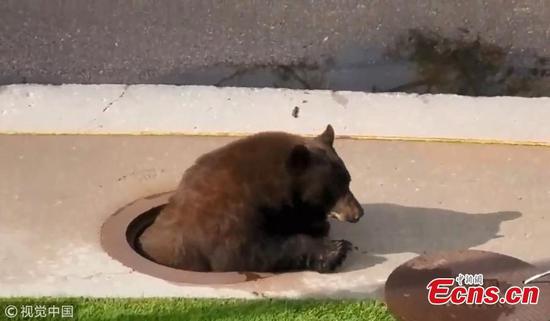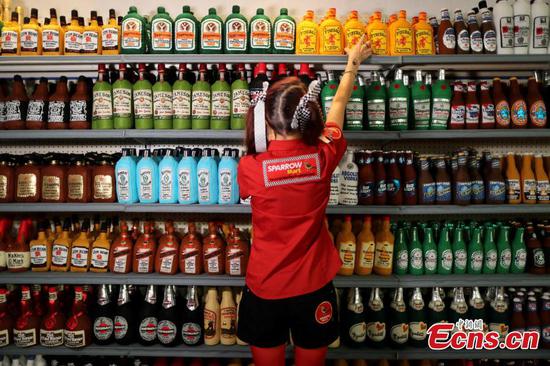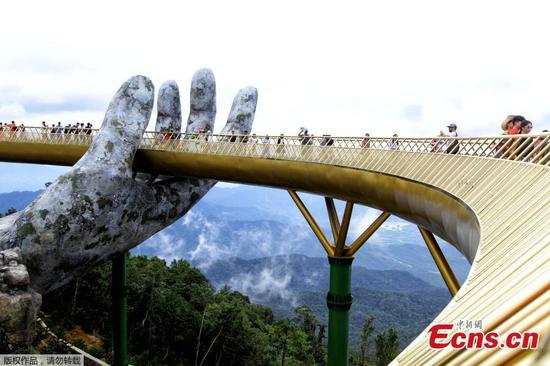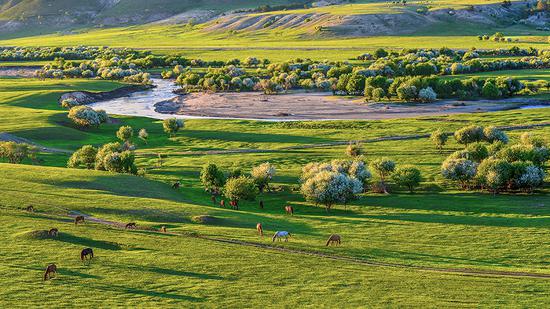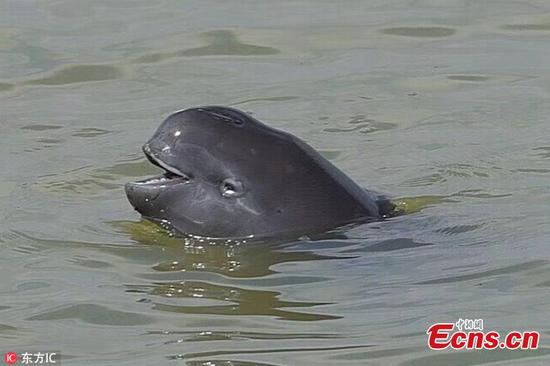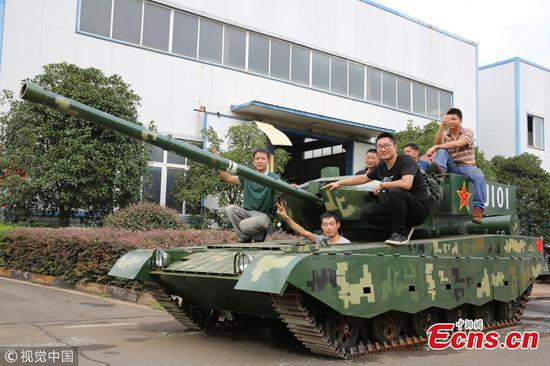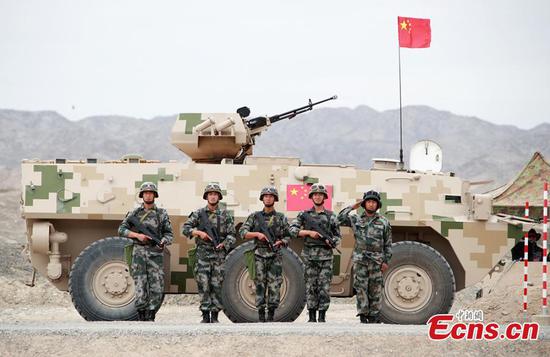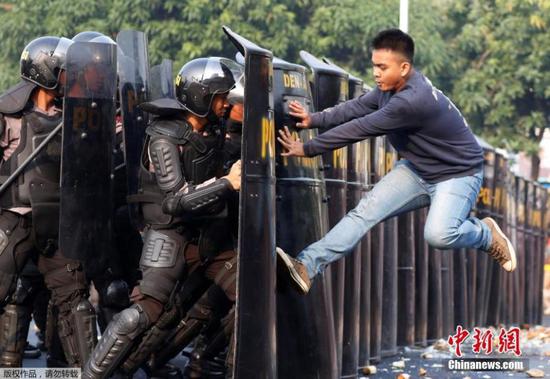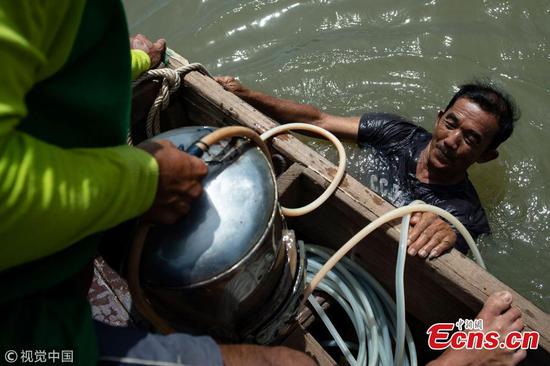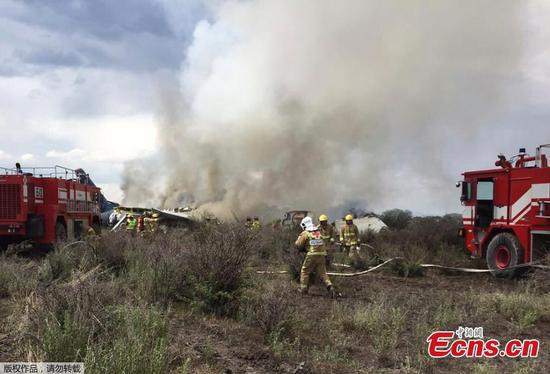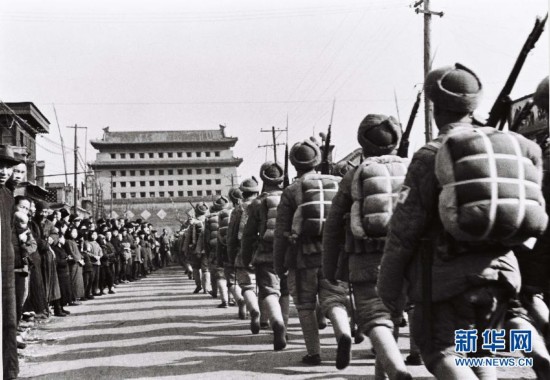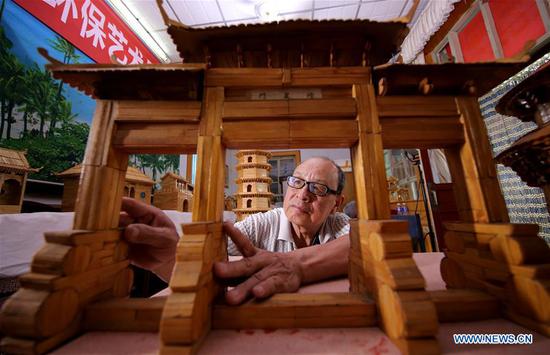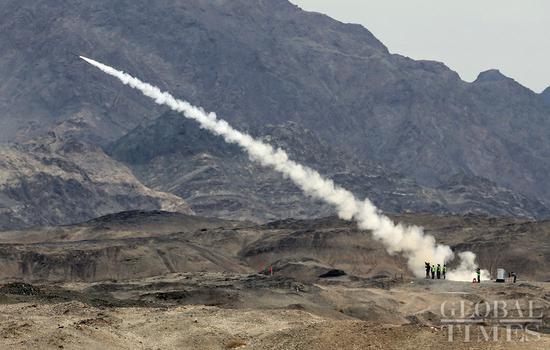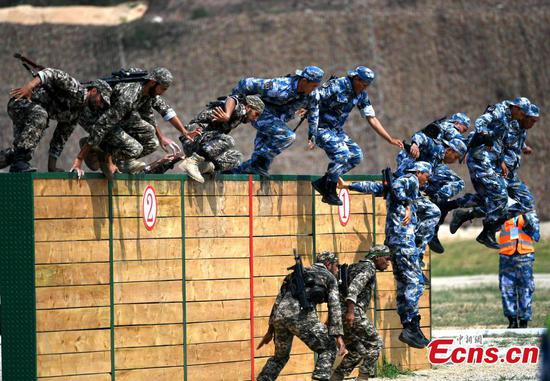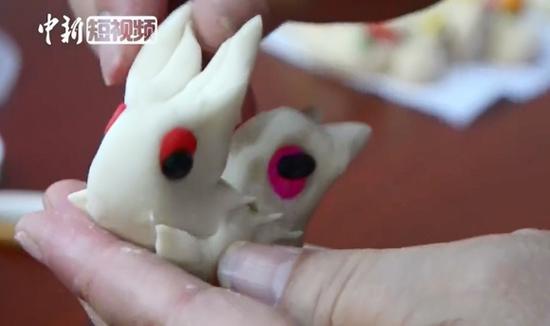Farming drones from China may soon be buzzing across British fields as a result of a new partnership between Chinese agricultural technology company XAG and Harper Adams University in the United Kingdom.
XAG and Harper Adams have formed an academic and research partnership that will focus on the development of agricultural technology, including drones that spray crops and ground-based robots that will lend a hand to farmers.
Guangzhou-based XAG, which is one of the world's largest agricultural drone manufacturers, will team up with Harper Adams at its National Center for Precision Farming, in Newport, Shropshire.
"We hope our technology can equally serve UK and European farmers, to help them improve productivity using sensors mounted on the drones to monitor the condition of the crops and subsequently apply the chemical precisely on the area requiring treatment," said Justin Gong, co-founder of XAG.
Gong said his company will also work with Harper Adams on artificial intelligence technologies.
Debbie Heeks, project administrator at Harper Adams, said the university is working to get the necessary approval to allow British farmers to use drones for crop-spraying. UK legislation currently allows drones to perform surveys over British farms, but the robots are not yet allowed to release anything from the air.
"Harper is working closely with the relevant authorities, such as the Community Agriculture Alliance, and others to enable trials involving drones for the first time in the country," Heeks said.
The National Center for Precision Farming has developed some of the most advanced agricultural technology solutions in the world. Last year, researchers at the university successfully completed a harvest using only robots.
The "Hands-Free Hectare" project saw a combination of automated tractors, drones, and on-the-ground robots plant, tend to, and harvest crops without anyone setting foot in the field. The project cost 200,000 pounds ($263,000) and was funded by the British government's innovation agency Innovate UK and Yorkshire-based farming solutions company Precision Decisions.
"The project seeks to prove that there's no technological reason why a field can't be farmed without humans working the land directly, and we did it," said Martin Abell, a mechatronics researcher at Precision Decisions.
Several other British enterprises and institutions have made strides in applying automation to agriculture.
London-based Shadow Robot Company has developed a robotic hand that is capable of picking and handling soft fruits and vegetables without damaging them. And the British government matched 17.5 million pounds in private-sector funding to establish Agri-EPI, an agricultural technology center at Cranfield University in Bedford.
While Britain has been slow to move robots from the lab into the field, China has aggressively pursued the deployment of farm robots to improve efficiency in the agricultural sector.
During the past year, XAG's crop-spraying drones have completed 1.7 million flights for 700,000 farmers in China.
In June, the Chinese government commenced a seven-year automated agriculture pilot project in Xinghua, Jiangsu province. The project features rice transplanters, pesticide applicators, fertilization equipment, and driverless tractors that utilize GPS from a Chinese navigation satellite.
Wang Jianyu from China's Ministry of Industry and Information Technology said such technologies can help China overcome problems in the sector, including an aging workforce, low productivity, and the overuse of pesticides and fertilizers.









